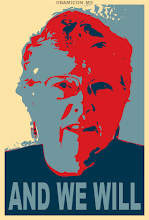McCain and Team Have Many Ties to Gambling Industry
Senator John McCain was on a roll. In a room reserved for high-stakes gamblers at the Foxwoods Resort Casino in Connecticut, he tossed $100 chips around a hot craps table. When the marathon session ended around 2:30 a.m., the Arizona senator and his entourage emerged with thousands of dollars in winnings.
A lifelong gambler, Mr. McCain takes risks, both on and off the craps table. He was throwing dice that night not long after his failed 2000 presidential bid, in which he was skewered by the Republican Party’s evangelical base, opponents of gambling. Mr. McCain was betting at a casino he oversaw as a member of the Senate Indian Affairs Committee, and he was doing so with the lobbyist who represents that casino, according to three associates of Mr. McCain.
The visit had been arranged by the lobbyist, Scott Reed, who works for the Mashantucket Pequot, a tribe that has contributed heavily to Mr. McCain’s campaigns and built Foxwoods into the world’s second-largest casino. Joining them was Rick Davis, Mr. McCain’s current campaign manager. Their night of good fortune epitomized not just Mr. McCain’s affection for gambling, but also the close relationship he has built with the gambling industry and its lobbyists during his 25-year career in Congress.
As a two-time chairman of the Indian Affairs Committee, Mr. McCain has done more than any other member of Congress to shape the laws governing America’s casinos, helping to transform the once-sleepy Indian gambling business into a $26-billion-a-year behemoth with 423 casinos across the country. He has won praise as a champion of economic development and self-governance on reservations.
“One of the founding fathers of Indian gaming” is what Steven Light, a University of North Dakota professor and a leading Indian gambling expert, called Mr. McCain.
As factions of the ferociously competitive gambling industry have vied for an edge, they have found it advantageous to cultivate a relationship with Mr. McCain or hire someone who has one, according to an examination based on more than 70 interviews and thousands of pages of documents.
Mr. McCain portrays himself as a Washington maverick unswayed by special interests, referring recently to lobbyists as “birds of prey.” Yet in his current campaign, more than 40 fund-raisers and top advisers have lobbied or worked for an array of gambling interests — including tribal and Las Vegas casinos, lottery companies and online poker purveyors.
When rules being considered by Congress threatened a California tribe’s planned casino in 2005, Mr. McCain helped spare the tribe. Its lobbyist, who had no prior experience in the gambling industry, had a nearly 20-year friendship with Mr. McCain.
In Connecticut that year, when a tribe was looking to open the state’s third casino, staff members on the Indian Affairs Committee provided guidance to lobbyists representing those fighting the casino, e-mail messages and interviews show. The proposed casino, which would have cut into the Pequots’ market share, was opposed by Mr. McCain’s colleagues in Connecticut.
Mr. McCain declined to be interviewed. In written answers to questions, his campaign staff said he was “justifiably proud” of his record on regulating Indian gambling. “Senator McCain has taken positions on policy issues because he believed they are in the public interest,” the campaign said.
Mr. McCain’s spokesman, Tucker Bounds, would not discuss the senator’s night of gambling at Foxwoods, saying: “Your paper has repeatedly attempted to insinuate impropriety on the part of Senator McCain where none exists — and it reveals that your publication is desperately willing to gamble away what little credibility it still has.”
Over his career, Mr. McCain has taken on special interests, like big tobacco, and angered the capital’s powerbrokers by promoting campaign finance reform and pushing to limit gifts that lobbyists can shower on lawmakers. On occasion, he has crossed the gambling industry on issues like regulating slot machines.
Perhaps no episode burnished Mr. McCain’s image as a reformer more than his stewardship three years ago of the Congressional investigation into Jack Abramoff, the disgraced Republican Indian gambling lobbyist who became a national symbol of the pay-to-play culture in Washington. The senator’s leadership during the scandal set the stage for the most sweeping overhaul of lobbying laws since Watergate.
“I’ve fought lobbyists who stole from Indian tribes,” the senator said in his speech accepting the Republican presidential nomination this month.
Follow the link on the title to continue reading this article for another 5 pages!


Links to this post:
Create a Link
<< Home